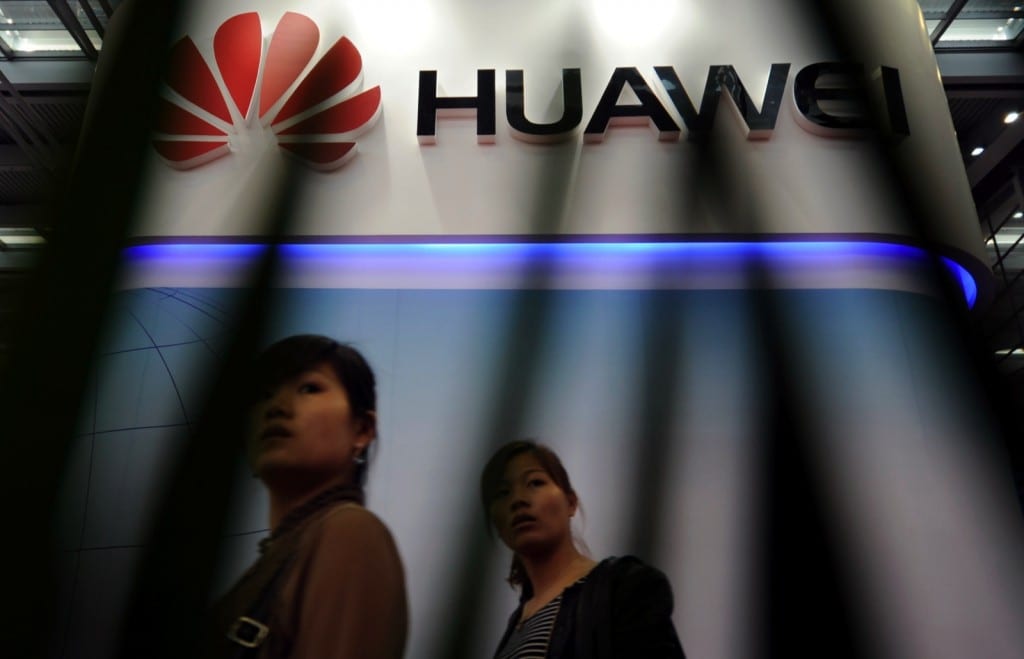
Shenzhen-based telecommunications company Huawei has transformed itself into an information and communication technology giant, and now intends to boost its business in Indonesia’s government sector by helping to build smart cities, with services for industry and finance among a host of others.
If you still underestimate Chinese technology — which in the United States has often been accused as a cover for spy tools — now is the time to change your mind. There was good reason to be skeptical in the past, but the former telco operator has transformed itself into a gigantic information and technology (ICT) industry with a range of services and competitive prices.
Some years ago Huawei sold only phones and wireless equipment but since then it has expanded to become an important player in ICT. Not only does it have a wide range of products, but it also concentrates on creating value and providing solutions in the entire range of modern digital life applications.
In Indonesia, Huawei’s technology is inside the wireless 4-G LTE Bolt which provides seamless internet access.
Globally, the company booked $46 billion in revenue last year, with the Indonesian market contributing about $1.3 billion, a figure expected to increase to $1.5 billion this year.
Its new Bandung Smart City project, launched in conjunction with the recent Asia Africa Conference, represents an important step forward. The project is being developed as a “safe city” concept.
Huawei along with state-owned telecommunications giant Telkom has built a command center monitoring cameras throughout the city.
This program will be further developed into a “smart city” project that aims to give maximum services to the city in a range of areas.
At the command center at the mayor’s office, for example, banks of monitors show what is happening across the city, assisting with the direction of traffic, guaranteeing a clean city and helping to stop crime.
Bilateral momentum
Sheng Kai, chief executive of Huawei Indonesia Tech Investment, is strongly optimistic about the Indonesian market.
“Relations between Indonesia and China have reached the best momentum at this moment, which will allow Huawei’s business in Indonesia to make outstanding achievements in the future, through the products and solutions that Huawei can bring in,” Sheng says.
The Chinese ICT company is cooperating with more than 250 organizations — vendors, suppliers and others — and sees the government sector, the banking industry and energy as its target market. Products will include simple gear like switches and routers through to storage and data-center business, with long-term evolution (LTE) for mobile applications.
While the technology may be similar to that offered by other vendors, Huawei believes it has competitive advantage the speed of services and response.
“We are open for cooperation with varied organizations to produce devices or any other joint venture,” Sheng says.
In the financial sector Huawei has a reputation for helping banks to tackle data management, varied internet and mobile banking services at high speed.
It recently helped Bank BJB to lower costs and improve delivery speed, an achievement other vendors had not been able to provide.
For China’s Merchant Bank, the company helped install a big data system.
“Big data is challenging, so we try with Huawei’s expertise that comes from our big expenditure in research and development to help banks for example build hubs, deliver bank services in omni-channel systems with other banks at low budget,” says Lance Zhao, enterprise business solution manager for Indonesia.
He adds that reliability of the technology make it possible for banks to service millions of customers with a variety of banking services.
Consumer trend
While its carrier business or network service is expanding through cooperation programs with a number of organizations, Huawei also plans to target consumer goods products with low-end smartphones Ascend Mate7 and Ascend P7. The P8 will soon join the range with an initial launch in London.
“With estimated smartphone sales of 30 million units last year, 60 percent of which were low-end products, I am confident we can take a share of about 10 percent in the coming years with smartphone devices,” Sheng says.
Sales of wireless modems with its Bolt product in cooperation with Lippo Group, a Jakarta Globe affiliate, have been outstanding this year, at about 1 million units in the first quarter. With hundreds of retail outlets in big cities, Sheng believes the 10 percent growth target is realistic.
As consumer sales rely strongly on branding campaigns, Huawei will spend up on media this year and plans to sponsor popular sporting events in Indonesia.
“We are working hard to evaluate sports as crowd-making events that will help boost our brand in Indonesia,” says Indonesia Huawei brand ambassador, Yunni Christine, adding that some major European football league clubs are also being sponsored by the brand.
‘Smart cities’
The Indonesian government aims to develop more than 200 “smart cities” where technology will be a critical element.
The Bandung Command Center is the forerunner of what the Huawei hopes will be many more such projects in a continuing partnership with Telkom. In addition to providing technical assistance, the project also provides Huawei with the chance to engage with the government and help it increase public service quality.
Huawei has spent about $25 billion on research and development across the globe in the past decade. R&D was hot-wired into the company’s DNA from the day it started, Sheng says.
Human resource development is another strong emphasis and in Indonesia is represented by a program to help build a research center at the Bandung Institute of Technology.
As cloud computing is also increasingly important, Huawei is engaging with various organizations, including Telkom’s Sigma, to build data centers. The service concentrates on the development of cloud architecture to ensure maximum efficiency in data management for clients.
The company also emphasizes the trustworthiness of its products, despite being accused of acting as an electronic spy agency by the US government.
“We are present in more than 170 countries and comply with all local government laws and regulations,” Sheng says.